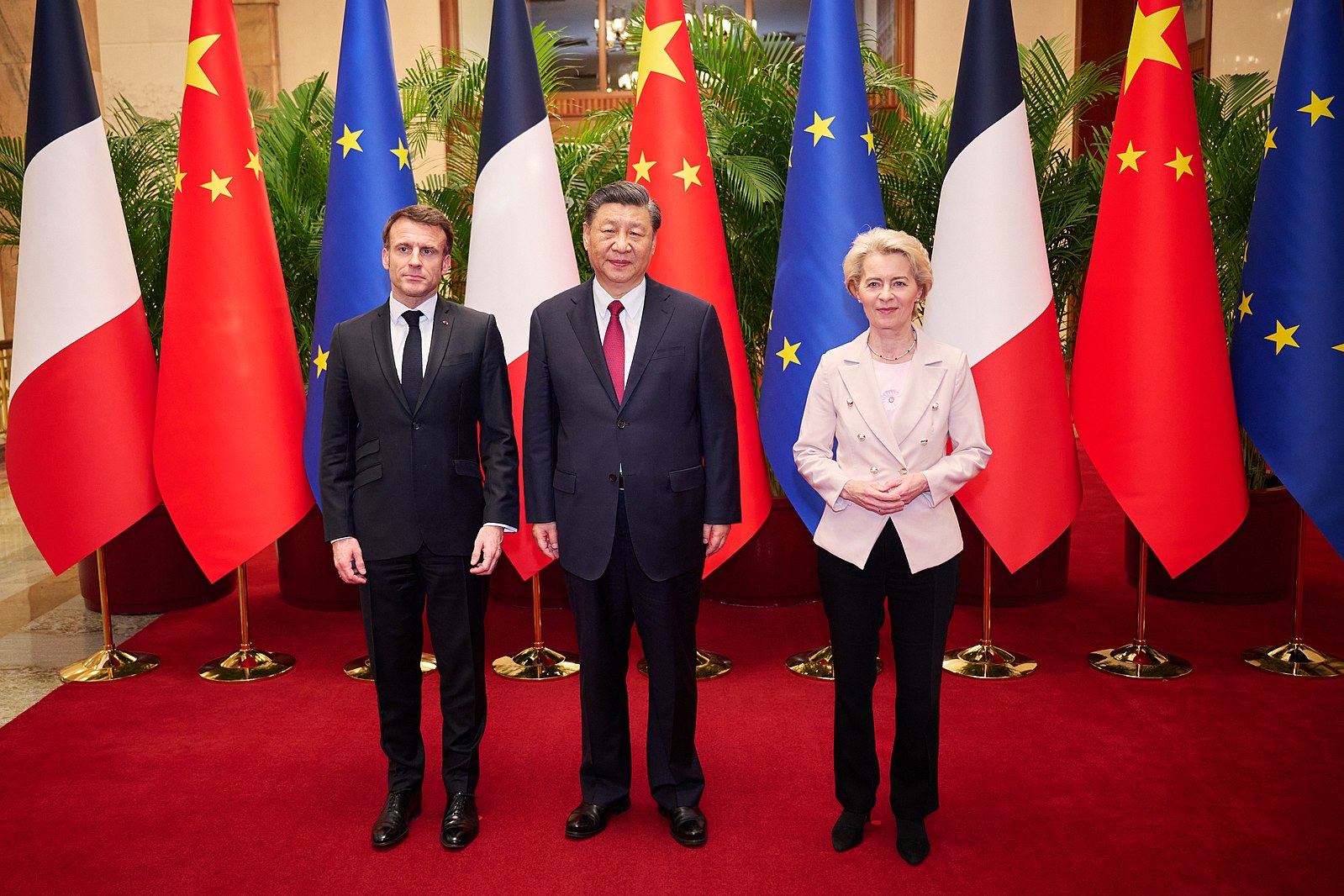One step forward and two steps back: China’s geopolitical code

President Emmanuel Macron and President of the European Commission
Ursula von der Leyen visit Chinese President Xi Jinping.
Ben Johnson -This week, China has rapidly backpedaled on the controversial statements made by its ambassador to France over the weekend. During an interview on French television, China’s ambassador, Lu Shaye, was asked about the Russian annexation of Crimea in 2014. After responding that Crimea was historically Russian, he continued by questioning the sovereignty of post-Soviet nations. Facing immediate backlash, China has issued several statements refuting Mr. Lu’s comments and has sought to curb the damage to its European relations.
While Lu’s statements were concerning for several reasons, they are especially harmful considering China’s recent push to strengthen its ties with Europe. These remarks signal a potential change in China’s geopolitical codes- how a country positions itself within the international community. Codes are developed through a series of questions that consider factors such as current allies and enemies and potential allies and threats. Amid deteriorating relations with the United States, Chinese President Xi Jinping has met with world leaders, many of whom are U.S. allies. Xi’s strategy of declining proposed U.S. talks while welcoming other countries points to a Chinese geopolitical code interested in driving a wedge between the United States and its allies. Despite these efforts, Lu’s comments have drawn widespread criticism across Europe and raise questions as to how China truly feels about continued European relations. As the Ukraine War has progressed, European leaders have continued to call for China to condemn Russia’s attack. China’s current stance, or geopolitical code, of recognizing Ukraine’s sovereignty while not condemning Russia’s attack falters when an official representative not only questions Ukraine’s sovereignty, but that of all post-Soviet nations.
The post-Soviet nations, referenced by Mr. Lu, are 15 states created following the breaking up of the Soviet Union, also known as deterritorialization. Territory is considered a space demarked by boundaries where a government controls everything contained within. While Russia has been recognized as the successor state to the Soviet Union, the other 14 post-Soviet territories each have sovereignty over their territory. Mr. Lu’s comments would suggest that China no longer recognizes the sovereignty of these states, a massive change in their geopolitical code. It will likely take some time for China to repair the damage done.
Source: Link Photographer: Dati Bendo, Attribution, via Wikimedia Commons

